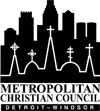The Pastor’s Corner
By Roger Skully, Cantor
The Isaac Agree Downtown Synagogue
Chanukah, 5777
As most, Jews and non-Jews, are aware, the holiday of Chanukah is rooted in several traditions. The first, it is a historical holiday described in the Books of the Maccabees, which are in the “Apocrypha.” This is a collection of texts that did not make it into the Canon of the Hebrew Bible. Interestingly, these texts are included in the Roman Catholic version of the Scriptures.
Historically, Alexander the Great had died, about 333 B.C.E. His empire was carved up into three areas by his surviving generals. The Eastern was called the Seleucid empire, after his general Seleucus. He assumed the name of Antiochus and his rule included Syria, which in that time included the lands of Judah. In 176 B.C.E., Antiochus IV ascended the throne and preceding, in the way of that part of the world, had himself called “Epiphanes – God made manifest.” In other words, like most Asian emperors, he had himself declared a god.
He did make a valiant attempt to unify his kingdom, a rather diverse ethnic place, by Hellenizing (instilling Greek culture) throughout the land. It did not take long for him to become embroiled in wars with the Egyptian part of the empire, and the Jews managed to divide themselves into both camps…Egyptian and Syrian. Antiochus was not pleased, entered Jerusalem, and butchered the population which had opposed him, and made the Hebrew Temple a place of Pagan worship.
History will record this was not his finest decision.
An aged priest, Mattathias, of the House of Hasmon, and his sons, rebelled. His son, Judah, who waged a successful guerrilla campaign and managed to restore the Temple and establish a dynasty, led the revolt. Maccabee meant the “hammerer” and it is also reported that a flag was fashioned inscribed with the first letters of the verse: “Who is like you Lord among the Mighty. (Exodus 15:11)” It should also be noted that Antiochus did not live in a peaceful world (did anyone?) and he was concerned about the rising power of Rome, a very legitimate concern.
Secondly, this is a holiday of the Winter Solstice…the days are now getting longer instead of shorter. Candles are lit for any number of reasons, some probably going back to other Solstice celebrations, which added a candle (additional light) each night to indicate the lengthening of the daylight hours. The introduction of the Chanukah menorah probably took some time, but became a popular fixture of the holiday. It also was a lesson that Jews learned in every land they inhabited…take the good parts of the new culture, add them to your own, and enrich Judaism with the result. This was, of course, Judaic pragmatism at its finest. It inspired the rabbis to develop Jewish law, Talmud, and endow the faith with the essence of its origins, and flexibility, as it encountered new challenges in thought, philosophy, and government.
Thirdly, it is worth remembering the saying “a great miracle happened here.” The miracle, Jewish belief in the one God was saved for the world to subsequently move to faiths that revered monotheism instead of pagan beliefs. One might see the hand of the Almighty here, as this holiday acquired, and is acquiring, new interpretations and beliefs that make it relevant for yesterday and today. We exalt in the saving strength of God, who watches over Israel and the world.
Amen and Amen
